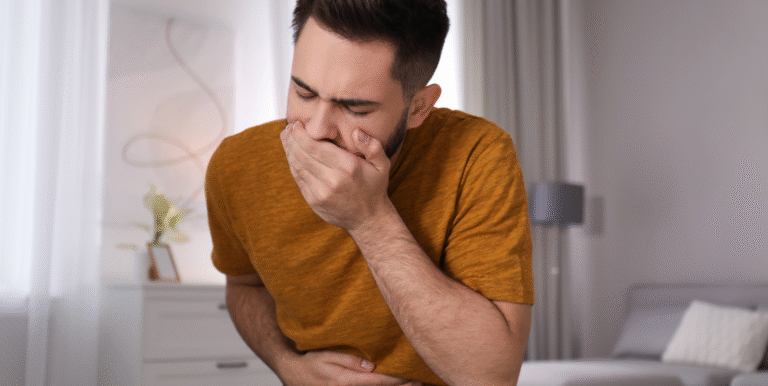Best Cannabis Strains for Dementia, Alzheimer’s

Best Cannabis Strains for Dementia, Alzheimer’s
Caring for someone with Dementia or Alzheimer’s disease is really hard. It brings big challenges for the person and for those who love and care for them. Everyone wants their loved one to be as comfortable and happy as possible.
Lately, some people are wondering about cannabis. They ask if it can help with some of the tough symptoms. Things like feeling upset, anxious, not sleeping well, or not wanting to eat. It’s important to know, cannabis is not a cure.
This article will talk about how to think about finding the best cannabis strains dementia alzheimers for symptom relief. We will focus a lot on safety. We will talk about what we know now. And, most importantly, we will say that talking to a doctor is a must. This is a very serious topic, and a doctor’s help is key.
Understanding Dementia and Alzheimer’s: Key Symptoms We Aim to Address
First, let’s talk about what Dementia and Alzheimer’s are, in simple terms. Dementia is a general term for when someone’s brain has trouble with thinking, remembering, and making decisions. Alzheimer’s disease is the most common type of dementia.
People with these conditions can have some difficult behaviors and feelings. These are sometimes called BPSD, which stands for behavioral and psychological Symptoms of Dementia. Cannabis might be able to help with some of these, such as:
- Feeling agitated or restless, sometimes even aggressive.
- Feeling very anxious or worried.
- Having trouble sleeping, like not being able to fall asleep or waking up a lot. Sometimes people get more confused or upset in the evening, which is called “sundowning.”
- Not wanting to eat can lead to losing weight.
- Feeling down or sad, or not interested in things.
How Might Cannabis Components Interact with Dementia/Alzheimer’s Symptoms?
Our bodies have a special system called the Endocannabinoid System, or ECS. It’s like an internal helper that keeps things like mood, sleep, pain, and appetite in balance. Cannabis has parts that can work with the ECS.
Let’s look at the main parts of cannabis, but we must be very, very careful when talking about them for dementia.
CBD (Cannabidiol): The Primary Focus
CBD is a big part of cannabis. The great thing about CBD is that it usually doesn’t make people feel “high” or confused. This is super important for someone with dementia.
CBD might help people feel calmer and less anxious. It might also help with swelling in the body. Some very early studies are looking if CBD can protect brain cells, but this is just starting. We can’t say for sure yet.
THC (Tetrahydrocannabinol)
THC is the part of cannabis that can make people feel “high,” confused, or even scared (paranoid). Older adults, and especially those with memory problems, can be very sensitive to THC. So, we have to be extremely careful.
In very, very small amounts, and only if a doctor says so, THC might help a little. It could help someone want to eat more, or help them sleep. It might even lift their mood a tiny bit, but only if it doesn’t make them more anxious.
Cannabis also has things called terpenes. They give cannabis its smell, but they might also have gentle effects.
Linalool
Linalool often smells like lavender. It is known for being calming and helping with anxiety.
Limonene
Limonene smells like lemons or oranges. It might help lift someone’s mood or ease stress.
Myrcene
Myrcene has an earthy smell. It might help someone relax or feel a bit sleepy.
Caryophyllene
This terpene smells spicy, like pepper. It might help with swelling in the body.
Considerations Before Exploring Cannabis for Dementia/Alzheimer’s
If you are even thinking about cannabis for a loved one with dementia, there are super important things to know. These are rules you must follow for safety.
Medical Supervision is Non-Negotiable
This is the most important rule. You must work with a doctor. Not just any doctor, but one who knows about using cannabis for older people or those with memory problems. They can help decide if it’s even an option and how to do it safely.
Focus is Strictly on Symptom Management and Quality of Life
Remember, cannabis is not a cure for dementia or Alzheimer’s. The only goal is to try to help with some of the difficult symptoms. The aim is to make your loved one a bit more comfortable and improve their day-to-day life, if possible.
“Start Low, Go Slow” is Essential
This means starting with the tiniest possible amount of cannabis. And then, if the doctor agrees, increasing it very, very slowly. This is especially true if there’s any THC involved. Tiny doses, called microdosing, are key.
Prioritize CBD-Dominant Products
To keep things as safe as possible, products with mostly CBD and very, very little or no THC are usually the first choice. This helps avoid the “high” feeling and confusion.
Monitor for Interactions
Cannabis can change how other medicines work. Your loved one is probably taking other medications. The doctor needs to check if cannabis is safe with those medicines.
Individual Responses Vary Greatly
What might help one person could do nothing for another. Or, it could even make things worse. Everyone’s body is different.
Identifying Potential Cannabis Approaches
This part is tricky. We cannot say “this strain is the best.” Instead, we talk about types of cannabis products that might be considered, always with a doctor. The goal in finding the best cannabis strains dementia alzheimers symptom relief is about being super safe and gentle.
High-CBD, Very Low-THC Products
These are usually the first things a doctor might think about. Why? Because they try to get the calming and anti-swelling help from CBD, without the risks of THC making someone feel “high” or confused.
Examples might be CBD oil made from hemp (which has almost no THC). Or, some cannabis strains have lots of CBD and very little THC (like a 15-to-1 ratio of CBD to THC, or even higher). Strains like ACDC or Charlotte’s Web are sometimes mentioned, but even these can vary, and a doctor must guide this.
Balanced CBD:THC (e.g., 1:1) Products
Sometimes, CBD alone doesn’t seem to help enough with certain symptoms, like very bad agitation or no appetite. If a doctor thinks it’s okay, they might suggest trying a product with equal amounts of CBD and THC (a 1-to-1 ratio), or just a tiny bit more THC.
This must be done with extreme caution. The starting dose would be incredibly small. Strains like Harlequin or Cannatonic sometimes have these balanced ratios, but again, they vary, and a doctor’s advice is crucial.
Considering Terpene Profiles for Calming Effects
If a product has lab reports, a doctor might look for terpenes like linalool (lavender smell) or myrcene (earthy smell). These might add a little bit to the calming or relaxing feeling. This is still part of the careful approach when looking into best cannabis strains dementia alzheimers for symptom management.
Safest Methods of Administration for This Population
How cannabis is given to someone with dementia is also very important for safety.
Oils and Tinctures
These are liquid forms of cannabis. They usually come with a dropper. This makes it easy to give very small, exact amounts. Oils and tinctures can also be mixed into food if that’s easier for your loved one.
Edibles (Low-Dose, CBD-Dominant)
Edibles are foods with cannabis in them. They might help for a longer time, like for sleep. But, they take a while to start working, and it’s harder to get the dose right. If used at all, they must be very low dose, mostly CBD, clearly labeled, and given only by the caregiver under doctor’s orders. They are riskier to start with.
Topicals
These are creams or lotions with cannabis. You can rub them on a sore spot, like an achy joint. But they won’t help with thinking or behavior symptoms.
Strongly Discourage Inhalation (Smoking/Vaping)
Smoking or vaping cannabis is generally not a good idea for older people, especially those with dementia. It can be bad for their lungs. It’s also very hard to control the dose this way for someone who is confused.
Note: When a doctor advises, getting legal, tested cannabis is important. Navigating the legalities and ensuring access to regulated, tested products often starts with obtaining a medical marijuana card with a physician’s approval. This step helps ensure safety.
Legal Access and the Importance of Medical Guidance via an MMJ Card
In many places, having symptoms like those seen in dementia or Alzheimer’s might allow a person to get a medical marijuana card. This always needs a doctor to say it’s okay.
A medical card is important. It means the cannabis products you get are tested in a lab. This tells you they are safe and have the amount of CBD and THC they say they do. This is super important for such a sensitive situation. This is a vital step for caregivers looking into the best cannabis strains dementia alzheimers symptom management.
A Caregiver’s Guide: Starting Safely and Observing Effects
If a doctor agrees to try cannabis, the caregiver has a very important job.
Detailed Observation Journal
Keep a notebook. Write down everything: the name of the product, how much was given (the dose), and what time it was given. Then, watch your loved one carefully. Write down any changes you see – good or bad – in their symptoms, mood, or sleep.
Introduce Only One New Product/Variable at a Time
Don’t start cannabis and another new medicine at the same time. If you change something, only change one thing at a time. This way, you know what is causing any effect.
Patience is Key
It might take some time to see if cannabis is helping, or if the dose needs a tiny change (with the doctor’s okay). Don’t expect big changes overnight.
Constant Communication with the Healthcare Provider
Talk to the doctor regularly. Tell them what you see in your journal. Ask questions. They are your partner in this. For support in understanding the requirements and processes, services like HealifyNowMMJCards can provide guidance on the medical card application once a doctor has recommended cannabis.
Current Research Landscape and Future Hope (Briefly)
It’s important to know that scientists are still learning about cannabis for dementia and Alzheimer’s. Most of what we know now comes from stories people tell about how it helped their loved ones with difficult symptoms. Or, it’s based on how we know cannabis affects things like anxiety or sleep in general. More research is needed.
Conclusion: Caution, Compassion, and Medical Expertise
To wrap up, cannabis is not a cure for Dementia or Alzheimer’s. But for some people, it might be a way to help manage some of the very hard symptoms. It might help improve their quality of life a little bit.
But, this must always be done with extreme care. A doctor who knows about this must be in charge. Safety and the well-being of your loved one must always come first. The journey to determine the best cannabis strains dementia alzheimers symptom management for a loved one is highly personal and requires a dedicated, informed, and medically guided approach.
Frequently Asked Questions (FAQs)
Here are some common questions.
Can cannabis cure Alzheimer’s or dementia?
No, absolutely not. Cannabis cannot cure these conditions. The only hope is that it might help ease some of the symptoms.
Is THC safe for someone with dementia?
THC can be very risky for someone with dementia. It can cause more confusion or fear. If it’s used at all, it must be in tiny, tiny amounts, only if a doctor says so, and with very close watching. CBD is much preferred.
What’s the safest way to give cannabis to a person with dementia?
If a doctor agrees, very low-dose CBD oils or tinctures are usually thought to be the safest starting point. The caregiver must give the exact dose the doctor recommends.
How do I talk to a doctor about cannabis for my loved one with dementia?
Be open and honest. Explain the symptoms your loved one is having that are difficult. You can say you’ve heard cannabis might help with some symptoms and you want to know their medical opinion. Focus on wanting to improve your loved one’s comfort and quality of life.
📚 Table of Contents
- Best Cannabis Strains for Dementia, Alzheimer’s
- Understanding Dementia and Alzheimer's: Key Symptoms We Aim to Address
- How Might Cannabis Components Interact with Dementia/Alzheimer's Symptoms?
- CBD (Cannabidiol): The Primary Focus
- THC (Tetrahydrocannabinol)
- Linalool
- Limonene
- Myrcene
- Caryophyllene
- Considerations Before Exploring Cannabis for Dementia/Alzheimer's
- Medical Supervision is Non-Negotiable
- Focus is Strictly on Symptom Management and Quality of Life
- "Start Low, Go Slow" is Essential
- Prioritize CBD-Dominant Products
- Monitor for Interactions
- Individual Responses Vary Greatly
- Identifying Potential Cannabis Approaches
- High-CBD, Very Low-THC Products
- Balanced CBD:THC (e.g., 1:1) Products
- Considering Terpene Profiles for Calming Effects
- Safest Methods of Administration for This Population
- Oils and Tinctures
- Edibles (Low-Dose, CBD-Dominant)
- Topicals
- Strongly Discourage Inhalation (Smoking/Vaping)
- Legal Access and the Importance of Medical Guidance via an MMJ Card
- A Caregiver's Guide: Starting Safely and Observing Effects
- Detailed Observation Journal
- Introduce Only One New Product/Variable at a Time
- Patience is Key
- Current Research Landscape and Future Hope (Briefly)
- Conclusion: Caution, Compassion, and Medical Expertise
- Frequently Asked Questions (FAQs)
- Can cannabis cure Alzheimer's or dementia?
- Is THC safe for someone with dementia?
- What's the safest way to give cannabis to a person with dementia?
- How do I talk to a doctor about cannabis for my loved one with dementia?






